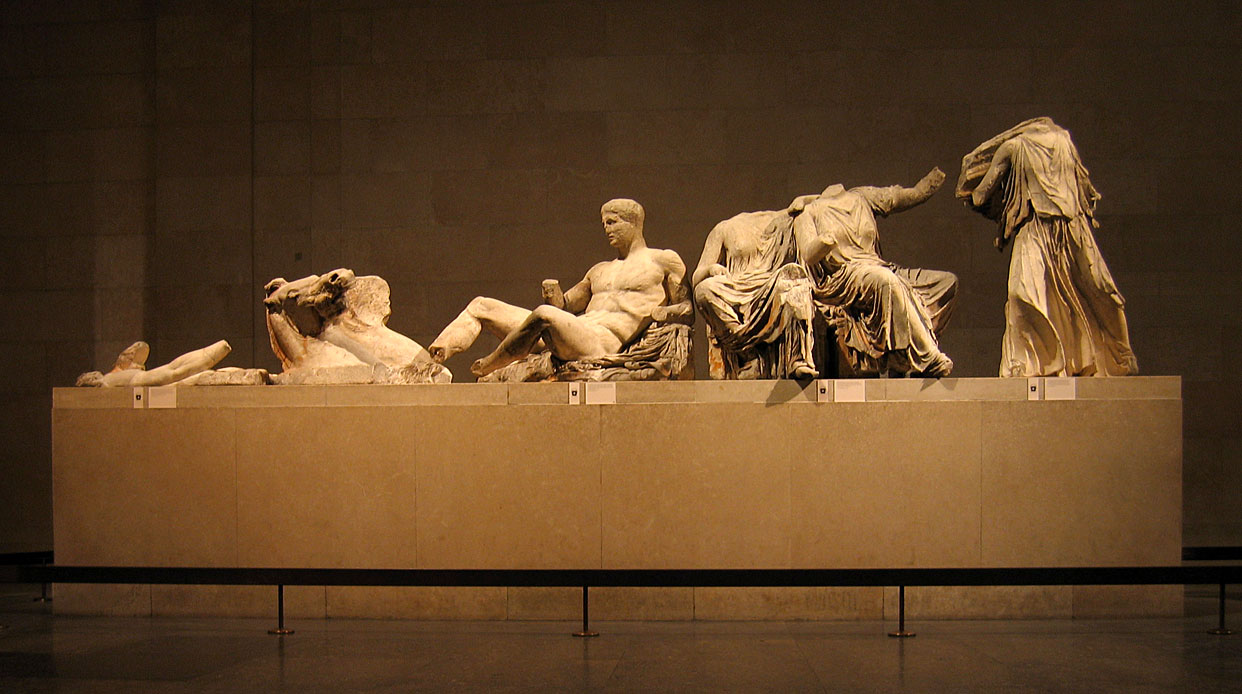
In 1808, English artist Benjamin Haydon was midway through painting the assassination of Dentatus when a friend convinced him to visit the Elgin Marbles, sculptures from the Parthenon recently brought to Britain:
The first thing I fixed my eyes on was the wrist of a figure in one of the female groups, in which were visible, though in a feminine form, the radius and ulna. I was astonished, for I had never seen them hinted at in any female wrist in the antique. I darted my eye to the elbow, and saw the outer condyle visibly affecting the shape as in nature. I saw that the arm was in repose and the soft parts in relaxation. That combination of nature and idea which I had felt was so much wanting for high art was here displayed to mid-day conviction. My heart beat! If I had seen nothing else I had beheld sufficient to keep me to nature for the rest of my life. But when I turned to the Theseus and saw that every form was altered by action or repose, — when I saw that the two sides of his back varied, one side stretched from the shoulder-blade being pulled forward, and the other side compressed from the shoulder-blade being pushed close to the spine as he rested on his elbow, with the belly flat because the bowels fell into the pelvis as he sat, — and when, turning to the Ilissus, I saw the belly protruded, from the figure lying on its side, — and again, when in the figure of the fighting metope I saw the muscle shown under the one arm-pit in that instantaneous action of darting out, and left out in the other arm-pits because not wanted — when I saw, in fact, the most heroic style of art combined with all the essential detail of actual life, the thing was done at once and for ever.
He “dashed out the abominable mass” of his own painting and devoted himself thereafter to drawing the marbles for as many as 15 hours a day. When he took the Swiss painter Henry Fuseli to see them, “Never shall I forget his uncompromising enthusiasm. He strode about saying, ‘De Greeks were godes! de Greeks were godes!'”
